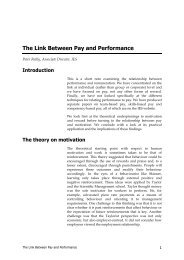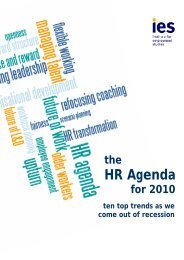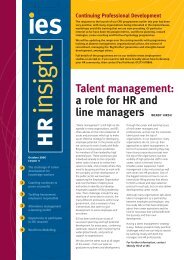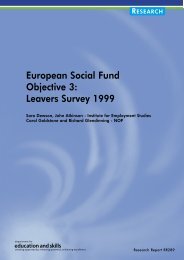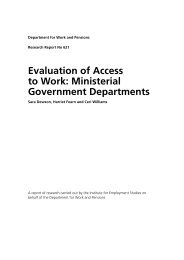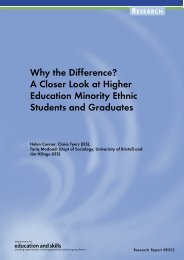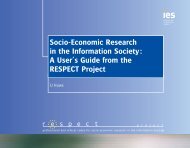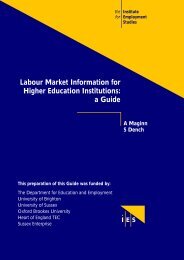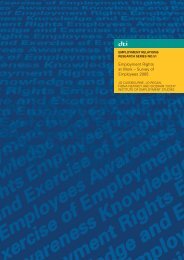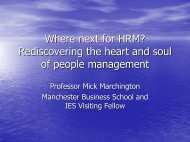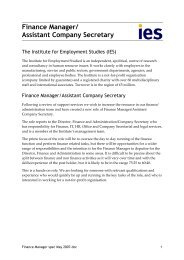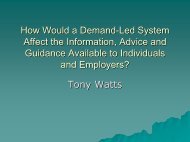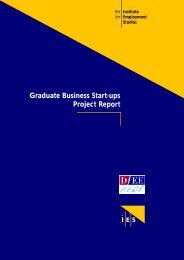Post-16 Transitions: a Longitudinal Study of Young People with ...
Post-16 Transitions: a Longitudinal Study of Young People with ...
Post-16 Transitions: a Longitudinal Study of Young People with ...
You also want an ePaper? Increase the reach of your titles
YUMPU automatically turns print PDFs into web optimized ePapers that Google loves.
educational need(s). The majority <strong>of</strong> parents and carers found<br />
this information and any materials useful. The internet<br />
appears to have been the most commonly used source <strong>of</strong> this<br />
type <strong>of</strong> information. Almost one-quarter <strong>of</strong> parents who<br />
sought published information and materials did so using the<br />
internet. Fourteen per cent <strong>of</strong> parents and carers approached<br />
their doctor or hospital for additional information, ten per cent<br />
used colleges and nine per cent went back to schools for<br />
additional published materials and advice.<br />
Thirteen per cent <strong>of</strong> parents and carers reported that they had<br />
come across barriers or obstacles that prevented them from<br />
obtaining services or advice relating to the young person’s<br />
special educational need(s). Most <strong>of</strong> these parents and carers<br />
thought that there was a general lack <strong>of</strong> information or<br />
guidance (33 per cent <strong>of</strong> those encountering difficulties said<br />
this was the case) and nine per cent reported that they were<br />
unsure where to go for advice, or indeed what to ask for. Just<br />
under one in ten parents experiencing difficulties said they<br />
had received conflicting advice from staff in different services<br />
or waited a long time for support to be provided. A similar<br />
proportion thought there was generally a lack <strong>of</strong> financial<br />
support to meet the special educational need(s) <strong>of</strong> the young<br />
person.<br />
6.4 Future support and information needs<br />
Parents and carers were asked to say generally if they knew<br />
where to go to get advice on education, employment and<br />
training, social security and housing and special educational<br />
need(s) and the results are given in Table 6.12. It appears that<br />
parents and carers are more knowledgeable about services<br />
related to social security and housing than they are about help<br />
<strong>with</strong> special educational need(s). Seventy-eight per cent <strong>of</strong><br />
parents agreed that that they would know where to turn for<br />
help <strong>with</strong> social security benefits and housing compared to 63<br />
per cent <strong>of</strong> parents and carers who would know who to<br />
approach for help <strong>with</strong> special educational need(s). More<br />
worrying though, is the fact that between 17 and 28 per cent <strong>of</strong><br />
parents indicated that they would not know who to turn to for<br />
advice on these matters.<br />
6.5 Chapter summary<br />
• Most young people have had some sort <strong>of</strong> contact <strong>with</strong><br />
pr<strong>of</strong>essional services since Year 11, the majority <strong>of</strong> which<br />
have been medical.<br />
108<br />
<strong>Post</strong>-<strong>16</strong> <strong>Transitions</strong> <strong>of</strong> <strong>Young</strong> <strong>People</strong> <strong>with</strong> SEN: Wave 2



